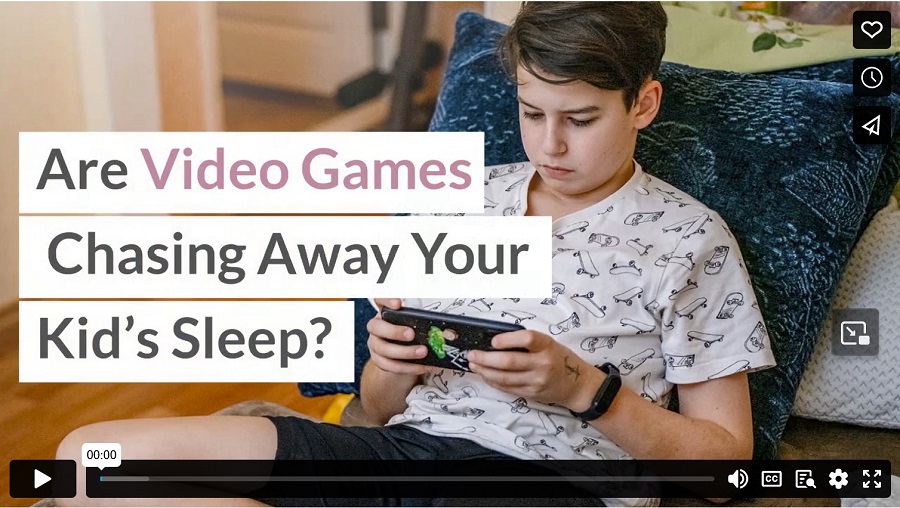Some of our readers today probably remember a time before video games were easily accessible to the general public. You probably remember that “cool kid” who had a Sega Genesis and got to play Sonic the Hedgehog as soon as they did their homework (heck, maybe YOU were that cool kid!). Even though personal gaming systems have *technically* been around since 1967, they really started to take off in the ‘80s and ‘90s, and popularity EXPLODED in the 2000/2010 era. Nowadays, video games no longer require a separate console – as long as you have an internet connection and a computer or tablet, you are good to go.
Virtually everyone has access to video games these days. Developers even market some apps (which many consider video games) to toddlers and preschoolers! Like it or not, video games are around to stay and are only getting more elaborate, involved, and accessible.
Video gaming has a complex list of pros and cons, making it difficult for parents to know how and when kids should have access to them.
Some of the pros include:
Educational:
Many of today’s video games have an educational element. Colors, letters, numbers, mathematics, hand-eye coordination, and even emotional regulation practice are just some educational concepts in video games these days.
Social Interaction:
For many years, people thought video gaming hindered social skills, but the COVID pandemic and subsequent social isolation muddied that argument. Many video games nowadays require interaction with other people, and authentic online friendships have flourished.
Entertainment:
Let’s face it – playing video games can be fun! They’re stimulating, colorful, challenging, and as varied as your mood. They offer a great escape after a stressful day and are a fun way to unwind alone or with friends.
On the other hand, some of the cons of video games include:
Addicting:
It’s essential to monitor how and when your child plays video games. If the Candy Crush or Animal Farm frenzies taught us anything, it’s that video games can be addicting and use up valuable time in unproductive ways.
Overstimulating:
Video games’ fast-paced and colorful interfaces can be overstimulating for kids, which often leads to massive meltdowns when screentime is over.
Sleep Issues:
That’s right – video games have all the criteria that make it hard for your child to fall asleep at night. We’ll spend the rest of today’s blog going over why video games make it so your child won’t sleep and what you can do about that.
Are Video Games the Reason Why Your Kid Won’t Sleep?
Unfortunately, there is no definitive answer to that question. However, if your kid won’t sleep and plays video games right before bed, there could be some connection. For all their virtues, video games also present the perfect storm of downsides that can hurt your child’s sleep.
For one thing, video games produce artificial light that tricks their body into thinking it’s not time to sleep. Melatonin is a sleep-inducing hormone produced in the brain, and its job is to signal the body to wind down. The blue light and flashing lights from video games suppress that hormone, making it difficult to fall asleep.
Additionally, video games are usually very exciting to play. While problem-solving, critical thinking, and quick decision-making are valuable skills in everyday life, honing those skills at bedtime can get your child too riled up to sleep.
Researchers have studied the effects of gaming on children and teens for years, and it seems to conclude that gaming before bed and for extended periods can even harm the quality of sleep. One study published in Pediatrics concluded that excessive video gaming before bed resulted in poor sleep quality and adverse effects on memory function the following day.
So What Can You Do?
As a parent, deciding what’s best for your child can be hard. On the one hand, your child can develop valuable skills and friendships through video gaming. On the other, their sleep quality and self-regulatory and academic skills suffer if they play too much.
We’re not here to tell you how to parent your child, but there is at least one thing you can do to help improve your child’s sleep: pull the plug at least an hour before bed.
Giving your child at least one hour of screen-free time before bed gives your child’s brain ample opportunity to release those sleep hormones and wind down for the day. That doesn’t mean you should adjust bedtime according to screentime – it should definitely be the other way around. Setting your child up for sleeping success means that you need to set a specific timeframe for video games that ends at least an hour before their set bedtime.
Not only does scheduling video game time help your child plan their day, but it also gives them ample time to wind down before bed and follow a bedtime routine. Consistent and calming bedtime routines are vital to a successful night’s sleep.
If video gaming has always butted up against bedtime in your house, it can be a difficult transition to create that hour buffer, but it’ll be worth it. Creating a calm atmosphere and nighttime routine that allow your child’s body to prepare for sleep is one of the best things you can do for your child.
Infographic
If your kid is sleep-deprived, too much time playing video games could be the culprit. Games can be fun for kids and help them meet new people, but if they aren’t observed, they can also make it hard for them to sleep. Sleep deprivation caused by prolonged video game use can cause sleep regression in children in extreme cases.

Video



